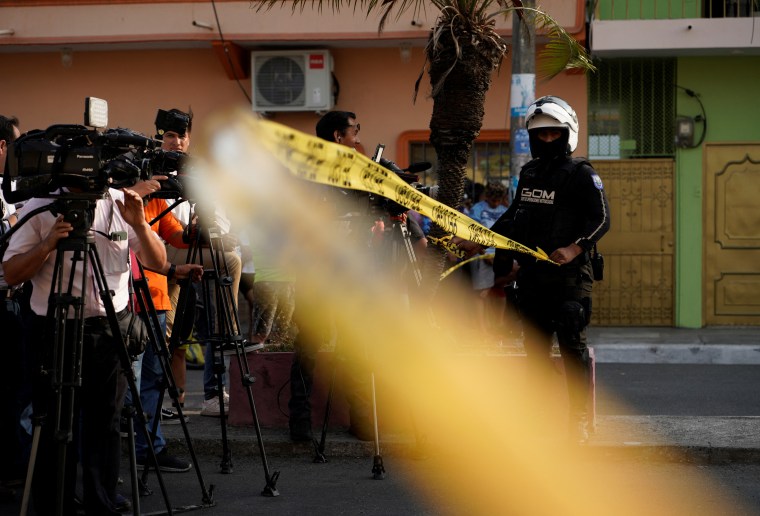At least five journalists fled into exile and at least four others had to relocate within Ecuador between April and October 2023, amid political turmoil and a deepening security crisis that have put reporters and press freedom at increasing risk and led to self-censorship.
One journalist—who asked CPJ not to disclose his name for safety reasons—left Ecuador in August, having worked as a freelancer in the Ecuadorian Amazon covering environmental conflicts.
An unidentified man assaulted the journalist when he was arriving home, hitting, insulting, and pointing a gun at him. “He told me not to be snooping and asked for my laptop. Luckily, I had left it at my wife’s business. He then tried to get my wallet and cell phone, but we fought, and I managed to escape,” he told CPJ, adding that neither the police nor the public prosecutor’s office would allow him to file a complaint because he could not name his assailant.
Since the government would not investigate or provide security, the journalist said he and his family felt forced to leave the country. “When I suffered a second attack by another unidentified man while I was at my wife’s business, I realized it was about time to flee Ecuador,” he added.
Another Ecuadorian journalist—who asked to remain anonymous, citing fear of reprisals—felt compelled to leave his hometown in October due to death threats from a criminal organization. He reported on crime for the media outlet he owns until one criminal group accused him of favoring a rival group. “I got death threats through messaging and so did my ex-wife. They said that they were watching her and that they knew we had a son,” the journalist told CPJ, adding that he filed a complaint with the public prosecutor’s office.
Two other journalists, whose names CPJ will not disclose due to safety concerns, who co-founded and worked at a radio station in the Ecuadorian Amazon, were forced to leave the area in October. An unidentified person told them that their names were on a list of people to be silenced by organized criminal groups and advised them to quit covering politics and criminal activities. The Commission for the Protection of Journalists (MAPP by its Spanish acronym) managed to relocate them.
Other journalists who were threatened or fled their homes so far in 2023 include:
- At least five journalists received letter bombs in March; one was injured.
- Karol Noroña left Ecuador in April after receiving death threats.
- A journalist who was threatened by criminal groups left Ecuador in April.
- Lissette Ormaza was run off the road and received death threats in June and was displaced internally.
- Andersson Boscán and Mónica Velázquez, of social media-based outlet La Posta, fled Ecuador in July.
The security crisis in Ecuador worsened ahead of the August 20 elections with the killing of former journalist and presidential candidate Fernando Villavicencio on August 9. Six Colombians accused of his murder were arrested and then killed in prison on October 6, and police shot dead a seventh Colombian suspect.
In August, the government approved a regulation to implement the Communication Law, which was amended in November 2022 to establish a Communication Council responsible for creating a national mechanism to protect journalists. But the mechanism has yet to be set up or allocated a budget.
The Communication Council has five representatives—four from the government and one from civil society. Civil society representative, César Ricaurte, told CPJ that the new mechanism was urgently needed due to the deteriorating security situation, which was impacting journalists’ work.
“It is important to secure the resources promised by the state,” said Ricaurte, who is also executive director of press freedom group Fundamedios and a MAPP member.
Jeannine Cruz, president of the Communication Council, told CPJ that a separate council subcommittee was responsible for reviewing cases of violence against journalists, including those exiled and displaced, and for filing complaints on their behalf.
“Most of them are terrified to file complaints on their own since they don’t trust the police or the prosecutor’s office,” she said, adding that the national mechanism would be set up in November.
